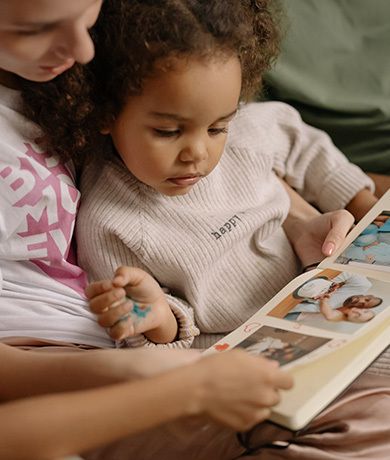Publication date May 5, 2023
Here Is How Your Parents Can Affect Your Future Relationship
It isn't easy to have foresight when you're a kid. There is no understanding of the effects or ramifications of your decisions or how those of others may influence you. Childhood ignorance of how your parents' feelings and behaviors affect your conduct is predictably poor regarding your connection with your parents.
A person cannot develop an essential awareness of the complexity of relationships, starting with the bond between parent and child, until they reach maturity. As you try to sort through friendships, intimate connections, and other relationships after that, the confusion gets more prominent and, regrettably, grows more frustrating. Here are some explanations of how your relationship with your parents affects your love life as an adult.

Recommended articles
You May Be More Forthcoming in Relationships if Your Parents Are More Attentive
An internal script is created for us because our parents love us. This guides us on comprehending love, receiving it, giving it, and, most significantly, resting it in love. In this sense, how you were raised influences how you handle romantic relationships as an adult.
Your level of openness in future relationships will thus be influenced by how communicative and present your parents are when you are young.
Kids in good health who are at ease expressing themselves in all five love languages are more likely to be raised by expressive, loving, and attentive parents. A secure attachment is the name given to this kind of connection.
You Could Be More Attention-Seeking in Relationships if Your Parents Are Less Attentive
Inattentive and emotionally-dramatic parents who are attentive to their kids when they 'turn up the volume' raise children that are overly attention-seeking and are pretty loud in their displays of emotion (they'll use whichever language of love seems to get someone's attention). The key is that they will go to whatever lengths to capture someone's undivided attention. This is referred to as an insecure-ambivalent type of attachment.
If you frequently find yourself contending for a love partner's attention as an adult, it's probable that you continually yearned for either or both your parent's parents' attention when you were younger. Each person's upbringing will determine if this was brought on by their own attachment patterns, the absence of a parental figure, or some other event.
You May Be More Reserved in Relationships if Your Parents Are Less Outgoing and Emotionally
Some people are reared by emotionally-restrained (or stifled) parents who vehemently reject children's pleas for attention and emotional expression. Youngsters have been taught not to communicate their demands or wants for their parent's love, concentration, and proximity. Research has shown that children need their parent's attention, even when they don't necessarily show it to others.
These individuals develop into stoic and uncommunicative people in their relationships with others, at least until their partners threaten to leave them, which briefly shakes them out of this reserved state and allows them to express the true extent of their feelings. This type of connection is known as an insecure-avoidant style.
These people can show affection to others non-verbally through presents, physical contact, and occasional attentiveness, but their verbal communication is inadequate. Sometimes they even suffer regarding physical contact (just wanting sex and never wanting to cuddle, hug, clasp hands, among others), and they may spend their whole day engaged in hobbies or jobs.
Although this attachment style appears extreme and harsh, it is an everyday reality for many individuals. Dismiss the notion that something is fundamentally "wrong" with you or another person, regardless of if you discover that you exhibit such habits as an adult or you've had a spouse with similar characteristics. These traits are ingrained from a young age and may be successfully developed via ongoing conversation and understanding of each other's love languages.
You Are More Likely To Lack Emotional Commitment In Relationships If You Were Raised In An Abusive Home
Extreme neglect and abuse (or the loss of a parent due to death, separation, removal by child welfare, etc.) are common causes of a disorganized upbringing, which is highly detrimental. People in this category frequently view individuals as inanimate things that can be used to satisfy their desires and have a propensity for manipulating others in their relationships.
They may use any and every one of the love languages, depending on which one their target reacts to the most. Unfortunately, for various reasons, many people grow up in abusive or unstable households. It's not unusual for the habits ingrained in abusive families to persist into adulthood, acting as reflections of what is "normal" or even as a deliberate attempt to avoid being sensitive to any emotional connection.
When acquired behaviors from early partnerships are used in adult relationships, any romantic relationship will include abuse if the adult child never ends the cycle of abuse and keeps doing it. Of course, harassment may manifest as a grown-up who opts for an abusive spouse due to not having dealt with the trauma caused by their familial connections.

Having Divorced Parents Might Make You Skeptical About Romantic Love and Unstable Relationships
People with divorced parents are frequently either overly pessimistic about marriage or cynical about it; however, they can also throw caution to the wind and fall madly in love with someone they have excessive chemistry with. However, the very explosive chemistry typically causes them to dissolve just as quickly. Considering the non-secure attachment techniques, this trend is frequently observed.
In essence, your attachment type rather than the actual divorce of your parents is the more significant predictor. However, a separation involving a kid under the age of five can harm attachment, as can one parent leaving or being inconsistent with or uninterested in the child following the divorce.
Having parents that are divorced does not define a person's propensity for romantic relationships, even if many factors influence divorce and how a kid will respond to and register a divorce.
Your Connection With Your Mother Will Significantly Influence Most Relationships You Have as an Adult
The attachment system you develop with your mother will influence almost all of your eventual connections, including those with your pets, friends, and romantic partners. It will also affect how you bond with your kids as a parent.
As was already said, a person's mother-child bond is the foremost connection, shaping their lifetime attachment types. However, the connection between men with their mothers can be a good predictor of how they will behave in romantic relationships.
A man's primary commitment is to his mother, so if he has a safe, loving, and caring relationship with her, he will similarly love his wife. Additionally, transference—a term used to describe how frequently we unintentionally react to others as if they were another person that reminds us of the other—occurs. Therefore, just as a female's core feelings about her dad inadvertently transfer to her BF/husband, a man's deepest feelings toward his mother unintentionally "transfer" to his girlfriend or wife.




